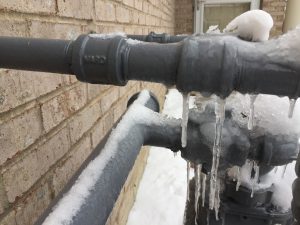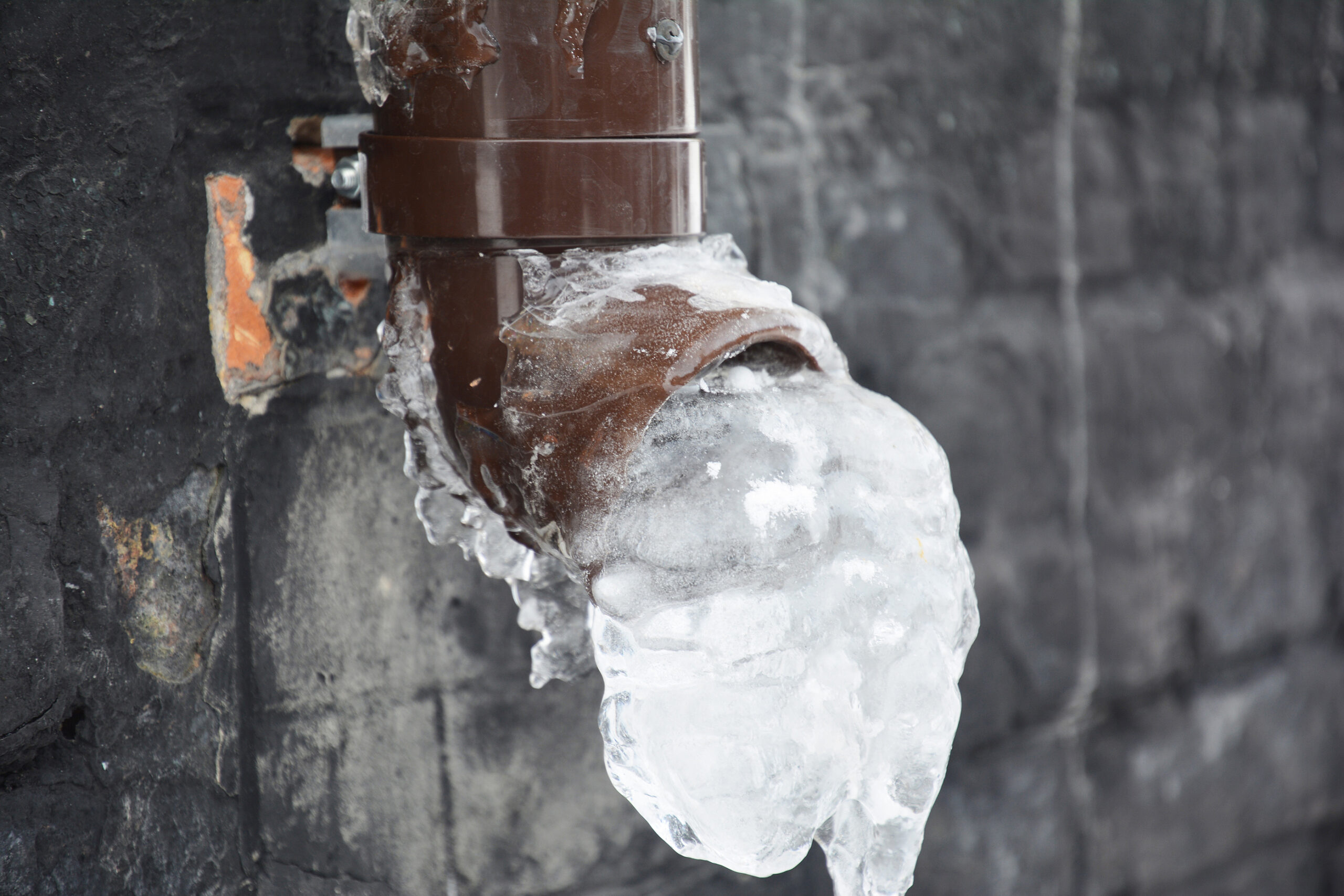On this page underneath yow will discover additional first-rate expertise around Helpful Tips to Prevent Frozen Pipes this Winter.

Cold weather can damage your plumbing, especially by freezing pipes. Right here's just how to avoid it from happening and what to do if it does.
Introduction
As temperature levels drop, the threat of icy pipelines boosts, potentially bring about costly repair work and water damage. Comprehending just how to avoid icy pipes is essential for homeowners in cool environments.
Avoidance Tips
Insulating at risk pipelines
Wrap pipes in insulation sleeves or use warmth tape to protect them from freezing temperature levels. Focus on pipes in unheated or exterior locations of the home.
Home heating techniques
Maintain indoor areas appropriately heated up, especially areas with pipes. Open up closet doors to allow cozy air to flow around pipelines under sinks.
How to determine icy pipes
Seek lowered water circulation from faucets, unusual odors or sounds from pipes, and noticeable frost on revealed pipelines.
Long-Term Solutions
Structural changes
Consider rerouting pipelines far from exterior walls or unheated areas. Include additional insulation to attics, basements, and crawl spaces.
Upgrading insulation
Invest in high-quality insulation for pipelines, attic rooms, and wall surfaces. Appropriate insulation assists maintain consistent temperature levels and decreases the risk of icy pipelines.
Safeguarding Exterior Plumbing
Garden pipes and outside faucets
Separate and drain pipes yard hoses before winter. Install frost-proof spigots or cover exterior taps with protected caps.
Understanding Frozen Pipelines
What triggers pipelines to freeze?
Pipelines freeze when subjected to temperatures listed below 32 ° F (0 ° C) for prolonged periods. As water inside the pipes ices up, it broadens, putting pressure on the pipe walls and possibly triggering them to burst.
Threats and problems
Icy pipelines can cause water system disturbances, residential or commercial property damages, and costly repair services. Ruptured pipelines can flooding homes and create extensive structural damages.
Indicators of Frozen Pipes
Determining frozen pipes early can prevent them from bursting.
What to Do If Your Pipelines Freeze
Immediate actions to take
If you presume icy pipes, keep faucets available to soothe stress as the ice thaws. Make use of a hairdryer or towels soaked in hot water to thaw pipes gradually.
Final thought
Preventing icy pipelines requires aggressive procedures and quick responses. By comprehending the reasons, indications, and preventive measures, house owners can shield their plumbing throughout cold weather.
Helpful Tips to Prevent Frozen Pipes this Winter
UNDERSTANDING THE BASICS: WHY PIPES FREEZE AND WHY IT’S A PROBLEM
Water freezing inside pipes is common during the winter months, but understanding why pipes freeze, and the potential problems it can cause is crucial in preventing such incidents. This section will delve into the basics of why pipes freeze and the associated problems that may arise.
THE SCIENCE BEHIND FROZEN PIPES
When water reaches freezing temperatures, it undergoes a physical transformation and solidifies into ice. This expansion of water as it freezes is the primary reason pipes can burst. As the water inside the pipe freezes, it expands, creating immense pressure on the walls. If the pressure becomes too great, the pipe can crack or rupture, leading to leaks and water damage.
FACTORS THAT CONTRIBUTE TO PIPE FREEZING
Low Temperatures: Extremely cold weather, especially below freezing, increases the risk of pipes freezing. Uninsulated or Poorly Insulated Pipes: Pipes located in unheated areas, such as basements, crawl spaces, or attics, are more prone to freezing. Insufficient insulation or lack of insulation altogether exacerbates the problem. Exterior Wall Exposure: Pipes running along exterior walls are susceptible to freezing as they encounter colder temperatures outside. Lack of Heating or Temperature Regulation: Inadequate heating or inconsistent temperature control in your home can contribute to frozen pipes. PROBLEMS CAUSED BY FROZEN PIPES
- Pipe Bursting: As mentioned earlier, the expansion of water as it freezes can cause pipes to burst, resulting in significant water damage.
- Water Damage: When pipes burst, it can lead to flooding and water damage to your property, including walls, ceilings, flooring, and personal belongings.
- Structural Damage: Prolonged exposure to water from burst pipes can compromise the structural integrity of your home, leading to costly repairs.
- Mold and Mildew Growth: Excess moisture from water damage can create a favorable environment for mold and mildew growth, posing health risks to occupants.
- Disrupted Water Supply: Frozen pipes can also result in a complete or partial loss of water supply until the issue is resolved.
WHY CERTAIN PIPES ARE MORE PRONE TO FREEZING
- Location: Pipes located in unheated or poorly insulated areas, such as basements, crawl spaces, attics, or exterior walls, are at higher risk of freezing.
- Exterior Pipes: Outdoor pipes, such as those used for irrigation or exposed plumbing, are particularly vulnerable to freezing as they are directly exposed to the elements.
- Supply Lines: Pipes that carry water from the main water supply into your home, including the main water line, are critical to protect as freezing in these lines can affect your entire plumbing system.
- Underground Pipes: Pipes buried underground, such as those connected to sprinkler systems or outdoor faucets, can be susceptible to freezing if not properly insulated.
https://busybusy.com/blog/helpful-tips-to-prevent-frozen-pipes-this-winter/

I discovered that blog entry about How to prepare your home plumbing for winter weather while doing a search on the web. Make sure you set aside a second to distribute this article if you enjoyed reading it. Thanks for being here. Don't hesitate to check our website back soon.
Need Help? Hire Us Now!